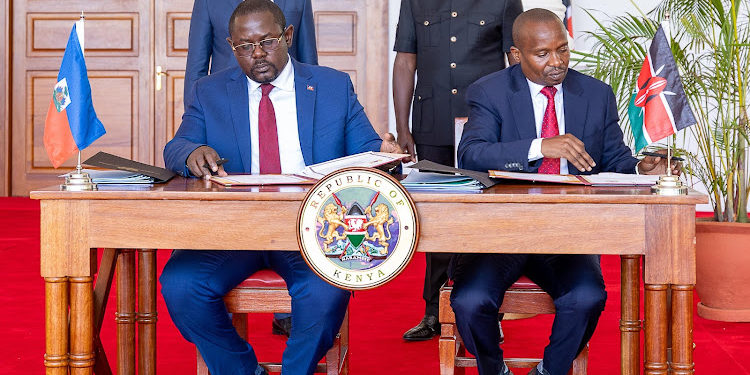Kenya has decided to halt the deployment of 1,000 police officers aimed at curbing gang-related crimes in Haiti. This decision, as conveyed by Principle Secretary for Foreign Affairs Korir Sing’oei, follows the resignation of Haiti’s Prime Minister on March 11, 2024.
Sing’oei emphasized that the absence of a stable political administration in Haiti renders the mission untenable. Pending the establishment of a recognized constitutional authority in Haiti, Kenya will defer any further action regarding the deployment.
This stance was reaffirmed by an official from the Ministry of Foreign Affairs, who clarified that while the agreement signed with President William Ruto remains valid, deployment is contingent upon collaboration with a sitting government.
The resignation of Prime Minister Ariel Henry occurred after a crisis meeting involving the Caribbean Community regional bloc CARICOM, where discussions also centered on forming a presidential college to appoint a new interim Prime Minister.
President of Guyana and CARICOM Chairman Mohammed Irfaan Ali acknowledged Henry’s resignation in the context of establishing a transitional presidential council and selecting an interim prime minister.
This development coincides with statements from Kenya’s Interior Cabinet Secretary Kithure Kindiki, confirming the mission’s pre-deployment status despite previous court orders. Kindiki assured that any legal impediments had been resolved, and preparations for deployment were underway.
However, concerns have been raised, notably by former US special envoy to Haiti Daniel Foote, who cautioned against Kenya’s involvement due to perceived limitations in its capacity to address Haiti’s complex security challenges. Foote characterized Kenya as a third-world country ill-equipped for such a mission, in an interview with Aljazeera.
















